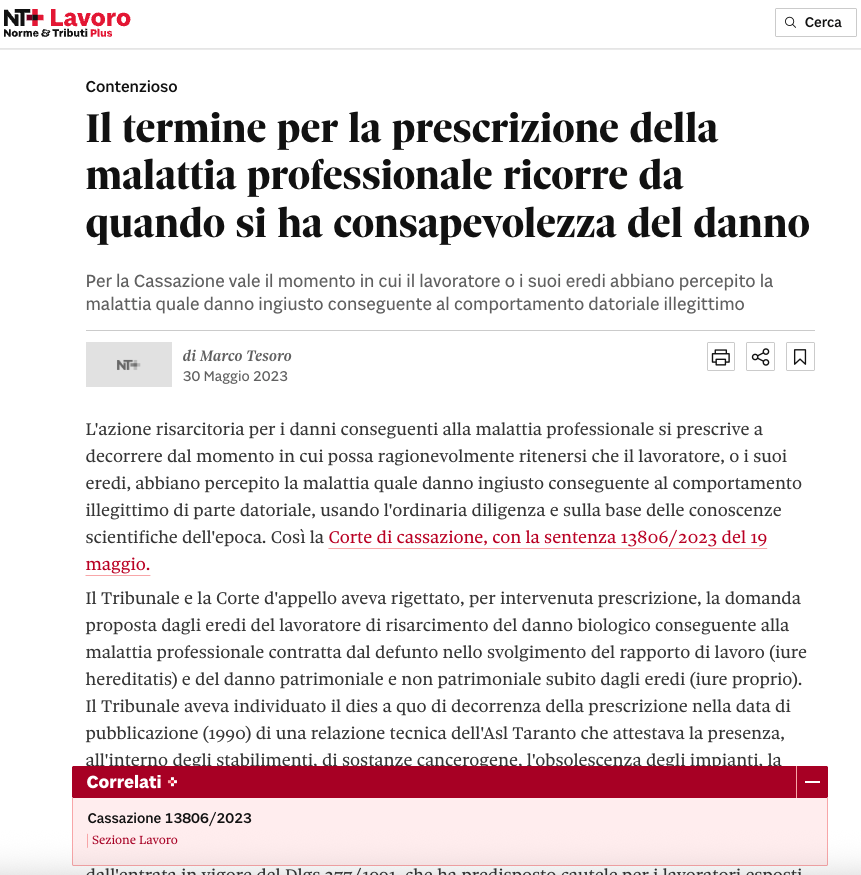Related Posts
Gruppo 24Ore28 January 2026
Failure to assign objectives does not give rise to compensation
Pubblicato su: Il Sole24Ore - Nt Lavoro - 27/01/2026 Leggi qui
Gruppo 24Ore27 May 2024
Ordinary illness protected period inapplicable to disabled employee
Pubblicato su: Il Sole24Ore - Nt Lavoro - 27/05/2024 Leggi qui


